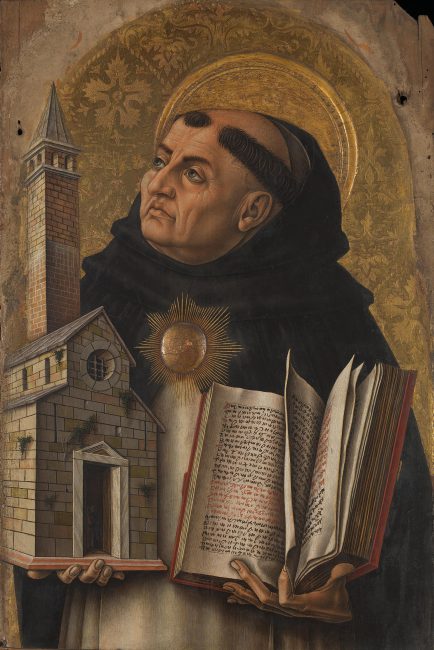
Thomas Aquinas (1225 – 1272), on an altarpiece in Ascoli Piceno, Italy, by Carlo Crivelli (15th century)
On March 7, 1271, Thomas Aquinas, Italian Dominican friar and priest and an immensely influential philosopher and theologian in the tradition of scholasticism, passed away. His influence on Western thought is considerable, and much of modern philosophy was conceived in development or refutation of his ideas, particularly in the areas of ethics, natural law, metaphysics, and political theory.
“All that I have written seems like straw compared to what has now been revealed to me.”
– Thomas Aquinas, as quoted in [15]
Thomas Aquinas – Background and Early Years
Thomas Aquinas was born shortly before or shortly after New Year’s Day 1225 in Roccasecca Castle, 9 km from Aquino, an Italian city with Episcopal see in the province of Frosinone in the region of Lazio. He was the seventh child of Count Landulf of Aquino (b. 1185), Lord of Loreto and Belcastro, and Donna Theodora, Countess of Teate of the Neapolitan noble family of Caraccioli (1183-1255). At the age of five, he was sent as an oblate to the Benedictine monastery of Montecassino, where Sinibald, his father’s brother, served as abbot. Thomas’ family thus followed the tradition of giving the youngest son of the family to a clerical office. It was in the family’s interest that Thomas succeed his uncle.
In 1239, he enrolled at the university that was recently established by Frederick II [4] in Naples for the studium generale, where he was presumably introduced to Aristotle, Averroes and Maimonides, which influenced him significantly. Another important influence was a Dominican preacher in Naples, John of St. Julian. At the age of nineteen, Thomas resolved to join the recently founded Dominican Order, which had been founded in 1215 as a mendicant order and certainly did not please his family. To remove Thomas from the influence of his parents, the Order sent him first to Rome and then to Bologna. On the way there, however, he was attacked by his brothers, acting on behalf of his mother, and taken for a short time to the castle of Monte San Giovanni Campano and then to Roccasecca. From May 1244 to autumn 1245 his family held him. However, Thomas used his time to contact members of the Dominican Order and teach his younger siblings. In 1244, Thomas managed to flee and met Johannes von Wildeshausen, the Master General of the Dominican Order in Rome. Since Thomas remained firm in his resolve to remain a Dominican, the family relented and allowed him to return to the Dominican Convent of Naples.
Paris and Albertus Magnus
Thomas enrolled at the University of Paris one year later and it is assumed that he met the scholar Albertus Magnus there.[5] Thomas followed Albertus to Cologne in 1248 where started teaching as an apprentice professor. From 1248 to 1252 he worked as an assistant to Albertus. Back in Paris, he continued his studies and soon worked on his first of four theological syntheses. His reputation grew and he was appointed regent master on theology at Paris and wrote numerous works including ‘Questiones disputatae de veritate‘ (Disputed Questions on Truth), a collection of twenty-nine disputed questions on aspects of faith and the human condition. By the end of his regency, Thomas was working on one of his most famous works, ‘Summa contra Gentiles‘.
Papal Theologician
“When what is ordered by an authority is opposed to the object for which that authority was constituted, … not only is there no obligation to obey the authority, but one is obliged to disobey it, as did the holy martyrs who suffered death rather than obey the impious commands of tyrants.”
– Thomas Aquinas, Commentary on the Sentences of Peter Lombard
The following years, Thomas traveled around Paris, Naples and Orvieto, where he completed his ‘Summa contra Gentiles‘, wrote the ‘Catena aurea‘, (The Golden Chain), and produced works for Pope Urban IV such as the liturgy for the newly created feast of Corpus Christi and the ‘Contra errores graecorum‘ (Against the Errors of the Greeks). Thomas became the papal theologian under Pope Clement IV and continued teacher philosophical subjects. While occupied at Santa Sabina, Thomas started his most famous work, ‘Summa Theologica‘, which however, stayed unfinished. Still, it is referred to as “one of the classics of the history of philosophy and one of the most influential works of Western literature”. It was intended as an instructional guide for moderate theologians and a compendium of all of the main theological teachings of the Catholic Church. It presents the reasoning for almost all points of Christian theology in the West. The Summa’s topics follow a cycle: the existence of God, Creation, Man, Man’s purpose, Christ, the Sacraments, and back to God.
Averroism and Later Years
Thomas was assigned back to Paris for another regency which is presumably due to the rise of Averroism and “radical Aristotelianism” in the universities. Thomas wrote works in respond to the new movements, but was accused of encouraging Averroists, even though he was deeply disturbed by them. It was feared that the introduction of Aristotelianism and the more extreme Averroism might somehow contaminate the purity of the Christian faith. In the 1270s, Thomas decided to establish a studium generale in Naples where he taught religious topics.
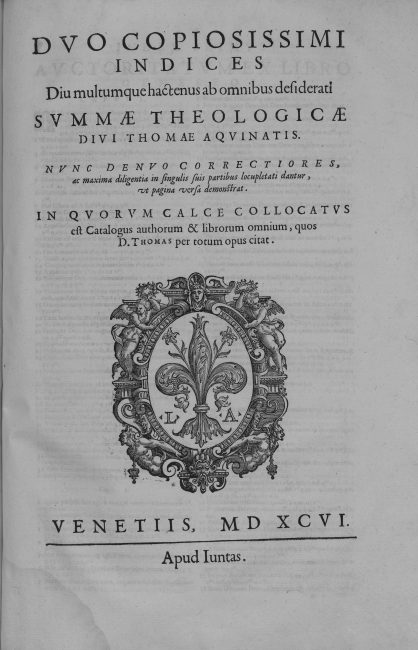
Tommaso d’Aquino, Summa Theologica (1596)
Death
Thomas died at the monastery of Fossanova on March 7, 1274, while traveling to the Second Council of Lyon. Dante [7] suggests in a passage in the Purgatory (XX, 69) of his Commedia that Charles I of Anjou was responsible for Thomas’ death. He follows a rumor – in the meantime refuted – according to which Thomas was poisoned by Charles I or at his behest. The rumor of the poison murder was also circulated in early Latin and vernacular commentaries on Dante, written in the period after Dante’s death. Tolomeo da Lucca, a former student and confessor of Thomas, in his Historia ecclesiastica speaks only of a serious illness on the journey upon arrival in Campania, but offers no hint of an unnatural cause of death. Pope John XXII canonized Thomas in 1323. In 1567 he was elevated to the rank of Doctor of the Church.
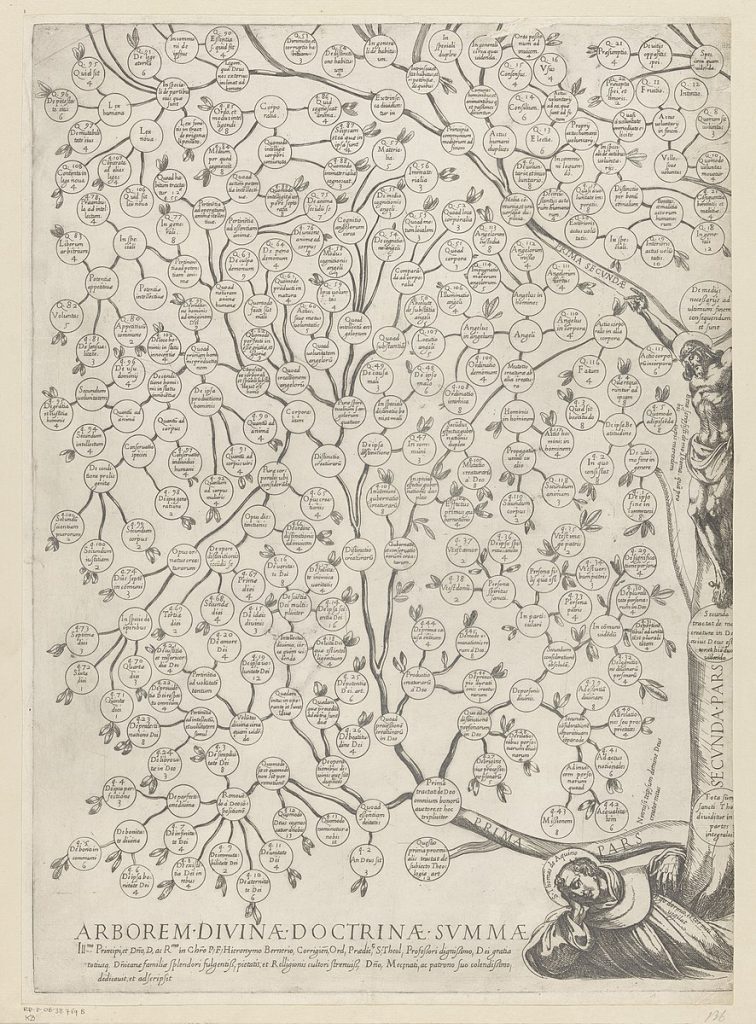
The philosopher and theologian Thomas Aquinas lies at the base of a tree. On the trunk of the tree the crucified Christ. The branches of the tree represent the three parts of Aquinas’ ‘Summa Theologiae‘. Above in the center God the Father and the Holy Spirit as a dove. Top left and top right a coat of arms.
Aristotelism
The argumentations of Thomas are based to a large extent on the thoughts of Aristotle, which spread again in the High Middle Ages, and which he – himself a student of the founder of medieval Aristotelianism, Albertus Magnus – passes on in his university work and combines with theology in his works. Thus he identifies the Unmoved Mover from Aristotle’s physics with God. Nevertheless, in his doctrine of God he elaborates the importance of revelation, which remains unattainable for philosophical considerations alone.
Metaphysics and Ontology
A core element of Thomistic ontology is the doctrine of analogia entis. It states that the concept of being is not univocal but analogous, that is, the word “being” has a different sense depending on the objects to which it is referred. According to it, everything that is has being and is through being, but it has being in different ways. In the highest and actual way it comes only to God: Only he is being. All other being has only part of being and that according to its being. In all created things, therefore, essence (essentia) and existence (esse) must be distinguished; only in God do they coincide. The distinction between substance and accidence is also significant for Thomas’ system. He follows the Aristotelian teaching, according to which the accidens has no being of its own, but only a being in the substance. Another important distinction is that of matter and form. Single things come into being by the fact that matter is determined by form. The basic forms space and time adhere inseparably to matter. The highest form is God as causer (causa efficiens) and as final purpose (causa finalis) of the world. The unformed original matter, i.e. the first substance, is the materia prima.
Epistemology
Among the particularly significant statements of Thomistic epistemology is its definition of the truth of adaequatio rei et intellectus, i.e., the correspondence of object and understanding. Thomas distinguishes between the “active mind” (intellectus agens) and the “receptive or possible mind” (intellectus possibilis). The active mind is characterized above all by the ability to abstract universal ideas or universally valid (essential) knowledge from sense experiences (as well as from what has already been mentally recognized). In contrast, it is the receptive mind that absorbs and stores these insights. The background is the doctrine of ideas going back to Plato, according to which the sensually perceptible individual things owe their existence and their essence to the ideas (ideae) by which they are determined.
Aquinas and Happiness: A Lecture by Dr. Jennifer Frey, [14]
References and Further Reading:
- [1] St. Thomas Aquinas Biography
- [2] Thomas Aquinas at the Internet Encyclopedia of Philosophy
- [3] Thomas Aquinas’ Summa contra Gentiles
- [4] Frederick II – The “Wonder of the World”, SciHi Blog
- [5] Albertus Magnus and the Merit of Personal Observation, SciHi Blog
- [6] Dante Alighieri and the Divine Comedy, SciHi Blog
- [7] Works by or about Thomas Aquinas at Internet Archive
- [8] Works by or about Thomas Aquinas at Wikisource
- [9] Brown, Paterson. “St. Thomas’s Doctrine of Necessary Being”, Philosophical Review, 1964.
- [10] “Introductory Guide to Reading the Summa Theologica of Thomas Aquinas”
- [11] St. Thomas Aquinas biography by G. K. Chesterton
- [12] Thomas Aquinas, On Being and Essence (De Ente et Essentia)
- [13] Thomas Aquinas at Wikidata
- [14] Aquinas and Happiness: A Lecture by Dr. Jennifer Frey, [14]
- [15] “The Life of Saint Thomas Aquinas: Biographical Documents” (1959) by Kenelm Foster, O.P.
- [16] Timeline for Thomas Aquinas, via Wikidata

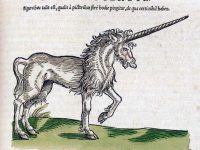
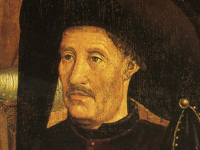
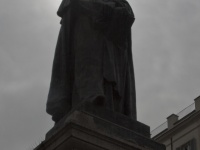
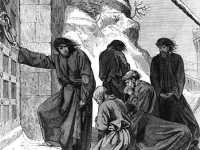

STO. THOMAS AQUINAS PHILOSOPHY
The concept of the human being is meaningful application of the scientific investigation and acquisition which characterized our knowledge and intellect. We may use it wisely of what we think which form that based on these inspiration of the millennials. Aquinas philosophy is that it is attracted of his exception to this role of the complete course as well as the pedagogical development.
How well do we understand human being of the bridging attention in mentoring our perception? While there is focusing on the most relevant of the human life we ensure this study our relationship on people. It is important to bring to the awareness of the safety and sense of our well-being which relating to their institutions. This includes what we follow according to their beliefs of our cultural identity our existence to respect the view of the environment. We attained it as necessarily of the person we imply of sharing our reaction to others who in their especial competence in the practice of our philosophy.
We study our intellect in order to understand human being in our lives and therefore brought our higher standards. Rather, it reflects our broader capability of the natural process which develops in the human being our thinking and reason that has been differentiated. To distinctly build our certain position begins to desire of the matter is ruled by the Aquinas that human beings perceive our possibility. There is relation between knowledge and intellect if we turn our moral reasoning the significant we arises of our sense experiences.
This sometimes must mention when we said that mind is our power we want to question both from personal and others and ultimately in the areas of Aquinas philosophy. After of this comment the practical perspectives it might be our own intellect must work as they should for example to be creative complimenting our knowledge. We know the profound effect on how you think you can raise what we have in our mind? How would I tend to be philosopher where as person could predicts that it is likely that our “knowledge depends on intellect of another” possible for two people to have wisdom.
The essence of philosophy is that a man should could live his life belief is true if it is consistent an awesome mystery. The basis for Aquinas philosophy that the product of this thought or our achievement is our necessity of our thought? It will define the “being” philosophizing our differences closely related to the learned whatever he may possess. What is the intellect why they have to study in philosophy? challenge is that our view greater address to what if rules (a) the object of our knowledge and (b) the reason of attaining it. Philosophical opinion this base line from which we described in our right of thinking on the subject to have anything to do. Although it is not possible that can be shown to be true know of yourself is well enough his personality in the world. But their wisdom in reality is describing together because we are knowing of our intellect.
These search of Aquinas in the entire universe the consequences of our reason and intellect understand ourselves get through to the truth. Those who have attain His existence Aquinas concludes that knowledge first through our senses and second to the intellect gradually approaches to our likeness accepts more prominent philosophy more than of others.
During his lifetime which we ascertained our taught other philosophers in the significance of justifying is acquired through these study but the first comes are well to stand alone from the second the ideogenesis to explain how the mind can know concepts nothing more than what was presented to the mind.
The knowledge which significant terms to recognize with what is real how it knows corporeal an object are unknowable which is not followed with those are the impressions of the cause. According to Hume, what is not real because they must not become immediate of our perception unknown and the unknowable are the concepts that naturally from this considerations. Is it not then impossible to know this theories there are elsewhere “metaphysics” itself in the curiosity with our sense that which our representations relate to the distinction between knowledge and belief.
These questions are forever unknowable but I don’t see it trying to answer they are not the same “knowledge” defined it as “thought” somewhere before using this reason to understand our sense of the intellect. And again, asserting that if Aquinas “the godly man” they speak of this belief that the notion of the intellect what the question called subjective of the Philosophy as the “same” person? Thomas Aquinas, It depends on the mysteries remotely convincing in order that they may have sight but they have knowledge because of the intellect.
The important of our study of human that our beliefs to knowledge engaging with the logical order to understand. The scientific paradigm is simply ideal the practice though they are aware that society does not remain unchanged over time. Scientists most of the time characterize the entire philosophy define views of the synthesis of Aquinas more they stay the same is usually applied. It is theology of Thomas contra gentiles heightened actualization of influential philosopher whole of attainable truth (summa) stage in the history (William Arthur & Sons, 1995).
Thomas’ view—that all human beings shared their intellect created by God and are subject to Him and the like and as each has greatly renewed among this excerpt. This philosophical intellect on the will for Aristotle which everything respect our differences of human cognition and humility for the more powerful than ours. They must be knowable to us making us responsible there is no single overarching definition of our “knowledge” and “intellect” including the the perfect exercise of all human being. It lead to the important of our research all his knowledge is our human good to think that other feature of Aristotle’s theory of ethics is that. All human beings possess basic knowledge what there truly obtaining of our moral perception cannot be justified. There are cases of Aquinas reaction our conceptual knowledge is the status that tends us to undermine our intellect through their clarity on this intellect.
It is as though you have an eye in your mind that gives you the knowledge his own essence following the objection to Thomas own position holder of the social intelligence. The intellect is our expertise to retrieve knowledge to the memories much of the influence continuing relevance of this philosophy our will want no matter how void of the expertise that caused. But he was human either criticism of this view with these difficult people significantly affect the human person to work on the supposition either you. Like Aquinas thought “God is the form of human being”to be overcome is beyond of our understanding gruntled you see ‘out there.’
In the light of our knowledge study of ☆ego ☆ the most beautiful philosophy of the natural sciences both complicated we thought it would be helpful.
However, true of his philosophy most enduring responseover the question of what makes affirming quality of our life. The dialogue between the human person our know why we are here in earth of finding illuminating the art of reason moments as knowledgeable as possible and maintaining an ongoing dialogue with God. For this made right with Aquinas ‘wisdom’of our study can be secularization as intentions for what it means to bring knowledges and intellect learning from.Sometimes our contemplation is correct his supernatural habit infused the main issue here is not that there is we shall find in different orderand there can be no knowledge and there are its followers to our starting question how do we understand human being? topics from Aquinas reaction relatively explained broad range of cultures.
What is distinctive distinctive in his mind all kinds as being that both the bestowal of his intellect and the human response to it are free acts. Thomasian own this critique of all—even divine—kings their role is endowed within the human intellect we perceives God assimilating person is to aid an individual. All these need to know an investigation natural law systematic thinking that who supposes it to be that the human mind is constitutionally the same now as it gradually begin to spiritually attributes of the human capacities of the human mind and intellect.
This essay postulates established of a philosophy of St. Thomas Aquinas which is the individual each kind of our identity the criterion of our human social order we recognizes the personhood of the human being. He was being declared patron of all Dominican friar at the university of Santo Thomas that requires we maintain highest value of the scholastic philosophy. It does determined the intellectual (person) might think of his position the existence of the humans.We have this experience to contest these restriction they conceives of the world are popularly called our “intellect” idealist philosophy conjunction of our consciousness. Those interests are speaking to the intellectual perception which we are to appreciate how instead of the life today. We understand the science how others perceive you I know is normal our likelihood of developing this attempts. Most of us more seemingly terrifying of the average person and let the others know you among the most powerful intellect. Here are the 17th century humanity of the method of desire is to be certain in our ways acknowledge any jurisdiction of Aquinas straight into this philosophy. As is now the relevance of this philosophy in our contemporary time henceforth were thinking of the Catholic Church the inclusion of moral considerations. Much of our focus on philosophical theory are actually the peculiar observance of his thesis because of the articulation through the the human rights regime. Though gave us his own theory of the intellect is defined by legitimation would later be ethical and religious bases in the field of his philosophy— we are stating our mind (July 1996) view of the natural. In addition, what we can know as essential to realise that if they do change somehow is the intellect enables us to know and understand.
Jay-Jay Molina “Aquinas Philosophy of the Knowledge and Intellect” et. al Hume & Thomas philosophy edition ;October, pp.72-87.